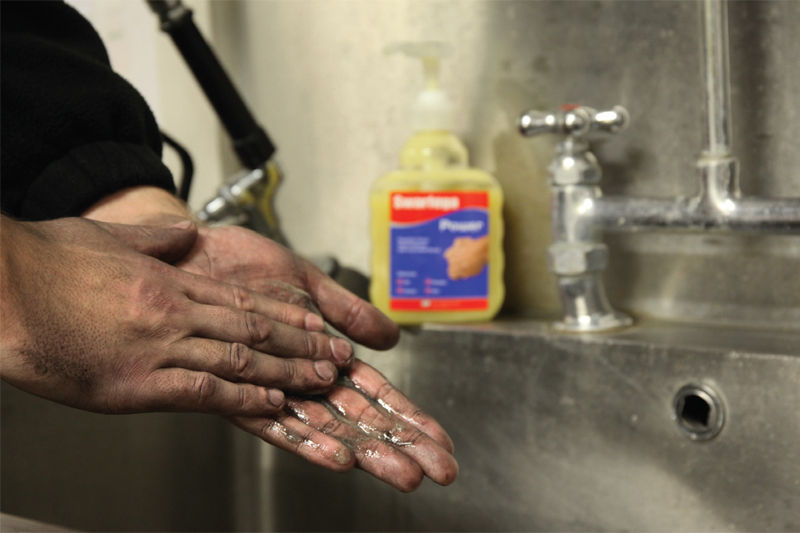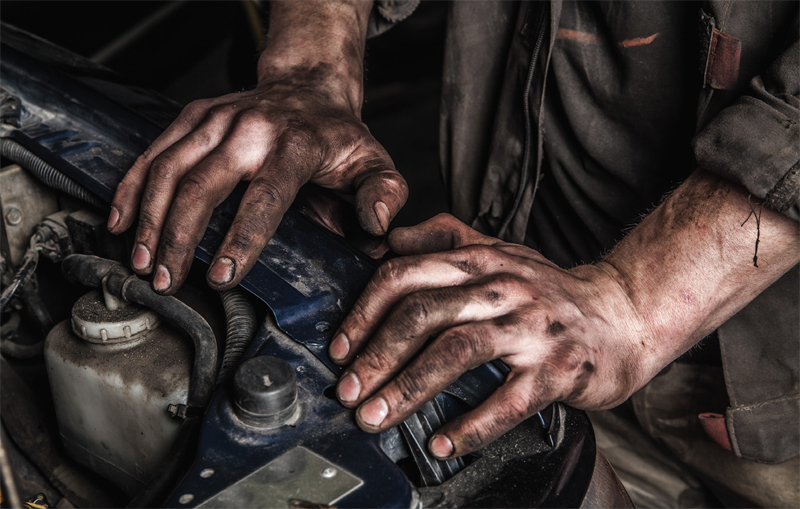
You will no doubt have heard about how automotive lubricants can wreak havoc with the skin, but Swarfega bets that there are some common practices causing damage to your skin without you realising.
One of the most common health issues for those who work with vehicles are work-related skin disorders. Conditions such as dermatitis have been quoted by the European Agency for Safety and Health at Work as the second most common work-related health problem in Europe. According to the HSE, they are thought to affect an average of one in 10 workers.
These skin issues can have a significant impact on an individual; dry, cracked and sore hands are often among the first symptoms. Skin disorders can come in many forms, and after repeated contact with contaminants it is also possible to develop an allergic reaction to a specific substance.
In addition to this, the impact on an individual’s wellbeing cannot be underestimated; many workers have spoken out to say that skin problems can be demoralising. They can affect personal and mental wellbeing, hindering various tasks from simply making a cup of tea, to preventing an individual carrying out their work properly.

So, why is handwashing so important? The top layer of the skin, just 0.03-0.25mm thick, forms the main barrier against contaminants. Easily damaged if not taken care of, the skin can take up to six weeks to be repaired; even something such as overwashing or using a cleanser that is too harsh for the level of soiling can take its toll.
To help understand the issues surrounding this, Swarfega carried out extensive research to find out what modern tradespeople were looking for in terms of skin care.
The challenges that the employees faced were as predicted – stubborn dirt, lack of understanding, intermittent glove use, and over-washing of hands were all cited as issues. In relation to skincare products, common complaints included ‘unclear labelling’ and ‘ineffective product’ – further to this, inappropriate hand cleaners were also being used.
Sometimes thought to be good for the skin, excessive handwashing with ‘lighter’, general hand soaps can actually be detrimental to skin condition; an ineffective clean can mean that potential irritants are not thoroughly removed. As a rule, you should avoid over-washing and use the mildest cleaner for the soiling being tackled. For example, for ingrained soiling, such as grease and oil, a gritty cleaner would be recommended.
Protection and restoration creams should also be used as part of a three-step approach to skin care. An at-work dispenser system is the best way to keep on top of this, with protective creams helping reinforce the hands against soiling, and moisturising creams to help restore the skin’s essential oils.









